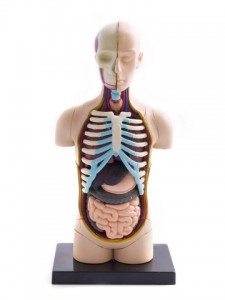Drug abuse takes a toll not only on you and your loved ones, but on society as a whole. The true costs of drug abuse go far beyond the individual, affecting the family, the local community, the national economy and the global economy. According to the Office of National Drug Control Policy, the repercussions of substance abuse affect the economic health of the US in a number of significant ways:
- By increasing the costs of health care to cover rehabilitation and the treatment of drug-related diseases
- By reducing productivity due to lost work, errors in the workplace and work-related injuries
- By increasing costs to the criminal justice system, such as law enforcement, prosecution and incarceration
- By imposing a financial burden on the victims of drug-related crimes
When you take a hard look at the impact of drug abuse, you’ll see that it’s much more than a personal problem. The National Institute on Drug Abuse estimates that illegal drug use costs Americans $181 billion per year, and that alcohol abuse costs the country $185 billion annually. Abusing drugs and alcohol can affect every person who touches your life, and many whom you’ll never meet. By the same token, getting the help you need to overcome addiction can have a positive impact on everyone around you.
Drug Abuse and Work
 Does it really matter if one employee misses a day of work or wastes a few extra materials because of an addiction to cocaine, heroin or alcohol? As an individual, you might not feel that the role you play in the national economy is all that great. But when you multiply one person’s lost productivity by thousands or millions, you’ll see that the drain on the national labor market can be severe. When fewer goods and services are produced as a result of drug abuse, the whole economy suffers as a result. Some of the major reasons for the drop in productivity include:
Does it really matter if one employee misses a day of work or wastes a few extra materials because of an addiction to cocaine, heroin or alcohol? As an individual, you might not feel that the role you play in the national economy is all that great. But when you multiply one person’s lost productivity by thousands or millions, you’ll see that the drain on the national labor market can be severe. When fewer goods and services are produced as a result of drug abuse, the whole economy suffers as a result. Some of the major reasons for the drop in productivity include:
- Employees calling in sick, being hospitalized or dying prematurely due to drug use
- Workers being incarcerated for the sale or possession of drugs or for drug-related crimes
- Workers’ compensation claims due to accidents in the workplace while employees were under the influence of drugs
- Employee health insurance claims for illnesses and injuries caused by recreational drug use
The more money employers lose due to missed work, higher insurance premiums or lost resources, the greater the costs to the community. In addition, Americans who are chronically unemployed because of drug addiction must often rely on public services that are funded by state and federal governments.
Drug Abuse and Crime
Have you ever suffered financially as a result of a drug-related auto collision, burglary or assault, even though you were the victim of the crime? If so, you don’t have to be told that drugs and crime often go hand in hand, or that they cost Americans billions of dollars each year. These costs encompass law enforcement, prosecution, incarceration and support for the dependents of inmates who can no longer support their families. To make matters worse, many inmates in state and federal institutions don’t receive the treatment they need to recover from substance abuse.
A study published in Issues in Science and Technology found that although drug abuse often motivates the crimes that lead to incarceration, addiction isn’t adequately treated in jails and prisons. On the state level, approximately 75 percent of inmates could benefit from addiction treatment, but only around 17 percent actually get the help they require. The study found that an intensive substance abuse treatment plan of nine months or more, followed by a transitional residential aftercare program in the community, resulted in lower costs to the economy and higher recovery rates among inmates.
Drugs and Your Health
 The effects of drugs on your physical and emotional health are serious and far-reaching. Along with the immediate risks of overdose, accidental injury, violence and suicide, drug abuse can increase the risk of long-term health problems like heart disease, kidney failure, respiratory disease, blood-borne illnesses like hepatitis or HIV/AIDS, sexually transmitted diseases and certain forms of cancer. Addiction can also trigger or worsen severe psychiatric conditions like depression, anxiety or schizophrenia. To an individual who’s struggling with addiction, the costs of treating these chronic conditions can be financially devastating. To society as a whole, the price of addiction is reflected in rising healthcare costs and medical insurance premiums.The New York Times reports that most of the government money spent on drug-related health conditions — over $460 billion in 2005 alone — goes to treating conditions like liver disease and drug overdoses rather than preventing or treating addiction itself. In that same year, only 2 percent of the government funds that were dedicated to drug abuse went to preventive services, rehabilitation, and research on the nature and causes of addiction.How does drug abuse affect your physical and financial health on a personal level? Consider these costs to your body, mind and household finances:
The effects of drugs on your physical and emotional health are serious and far-reaching. Along with the immediate risks of overdose, accidental injury, violence and suicide, drug abuse can increase the risk of long-term health problems like heart disease, kidney failure, respiratory disease, blood-borne illnesses like hepatitis or HIV/AIDS, sexually transmitted diseases and certain forms of cancer. Addiction can also trigger or worsen severe psychiatric conditions like depression, anxiety or schizophrenia. To an individual who’s struggling with addiction, the costs of treating these chronic conditions can be financially devastating. To society as a whole, the price of addiction is reflected in rising healthcare costs and medical insurance premiums.The New York Times reports that most of the government money spent on drug-related health conditions — over $460 billion in 2005 alone — goes to treating conditions like liver disease and drug overdoses rather than preventing or treating addiction itself. In that same year, only 2 percent of the government funds that were dedicated to drug abuse went to preventive services, rehabilitation, and research on the nature and causes of addiction.How does drug abuse affect your physical and financial health on a personal level? Consider these costs to your body, mind and household finances:
- Insurance copayments for doctor visits to treat drug-related conditions
- Out-of-pocket medical expenses for drug-related services or medications
- Emergency care for overdoses or accidental injuries
- Lost wages due to illness, injury or impairment on the job
- Increased childcare costs due to parental illness or hospitalization
Your health is one of your most precious resources. By conquering drug or alcohol addiction, you can protect your physical and mental well-being and prevent the devastating costs of substance abuse.
Drug Abuse on a Global Scale
On a worldwide level, drug abuse has a negative influence on all of us. International drug trafficking has increased the availability of drugs around the globe, even in the smallest, most remote communities. At the same time, the costs of drug-related crime and violence are on the rise throughout the world. While it may seem that a casual neighborhood drug deal doesn’t have much of an impact on the global society, these small local exchanges are often the reflection of a much larger problem.
According to a press release from the United Nations, illegal drugs like heroin, cocaine and meth kill approximately 200,000 people around the world each year. For each life that’s lost, families and communities suffer emotionally and financially. The Partnership at DrugFree.org adds that the cost of treating substance abuse on an international scale would cost about $250 billion — a relatively small amount compared to the staggering losses caused by untreated drug addiction.
How Much Is Drug Abuse Costing You?
The true costs of addiction are not strictly financial. Drug abuse can also drain you emotionally, undermine your self-esteem, damage your personal relationships and destroy your professional dreams. The longer you continue to use drugs, the greater the costs to you, your loved ones and your society. To estimate how much substance use has cost you, ask yourself these questions:
- How much money do I spend buying illegal or prescription drugs each month?
- How much have I spent this year on medical care because of illnesses or accidents caused by drug use?
- Have I lost wages or lost a job because of drug-related illness?
- Have I spent time in jail because of drug-related crime?
- Have I been through a divorce or lost an important close relationship because of drug or alcohol abuse?
- Have I been separated from my children or other family members because of my drug use?
- Have I lost self-respect because I can’t quit using, no matter how hard I try?
Chalking up your losses due to drugs can be a painful experience, but it can also provide the incentive you need to get your life back on track. At Axis, we specialize in providing the intensive treatment that you need to heal from your addiction and recover your personal stability. Call our intake counselors to initiate the process of recovery and prevent the devastating losses of drug abuse.


